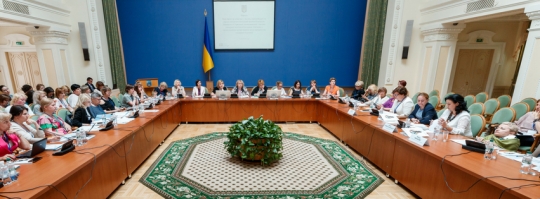According to OPORA's Communications Manager Kateryna Zhemchuzhnykova, Ukraine took several international commitments to guarantee political rights of women. However, the number of women in both Ukrainian Parliament and local self-government bodies is one of the lowest not only in Europe, but also in the world. According to Interparliamentary Union, Ukraine holds 145 place among 193 countries by representation of women in parliament.
“While the percentage of women in Parliament reaches 12%, the percentage in oblast councils after 2015 local elections is slightly higher – 15%, in city councils – 18%, and in local councils after 2017 elections in UTCs – 41%. As we can see, the smaller the council the more women it has. Besides that, despite the effective legislation establishes a 30% gender quota requirement for party lists, it is declarative, because there are no sanctions for non-compliance. Although some political parties do fulfill the gender quota requirement when compiling their lists, they do it on their own discretion, as long as the legislation doesn't provide any sanctions if they don't fulfill it, i.e. rejection of the list or a fine. In 2014 local elections, for example, none of 13 political parties guaranteed 30% representation of each gender in their electoral lists. Samopomich Union turned out to be the most responsible in this regard, – 15 of 16 lists were in line with gender requirement. PPB “Solidarity”, for its part, had the lowest percentage of women in their electoral lists. During 2017 elections in UTCs, 39% of all party lists for election of city council members, held under the proportional representation electoral system, were registered with violation of gender quota requirement. Samopomich Union, by the way, was the only party which compiled its party lists in line with gender quotas requirements on parliamentary elections and, as a result, received subsidy from the state budget. Sanctions like rejection of party lists and fines for non-observance of quotas, as well as positive incentives like subsidies are widely used in the world and could become those sanctions, which should be introduced in Ukrainian legislation,” – she told.
According to her, it is also critical that there is no regulation establishing mandatory inclusion of both gender representatives in each group of candidates, i.e. each 3-5 persons in electoral list. Such situation allows the parties to enlist women, but give them numbers which complicate their election.
“A draft law #6171, which is already registered in the Parliament, is called to resolve this problem, but it amends the Law of Ukraine on Local Elections, which is no longer in effect. Experts of Civil Network OPORA and International Foundation for Electoral Systems have developed a new draft law, which introduces sanctions for non-observance of gender quota requirements, but it's impossible to register it now due to a specific procedure of consideration an already registered draft law undergoes. Besides that, there are not sanctions in the Election Code, amendments to which a working group considers these days. Attendance of a wide circle of experts on gender issues on a meeting of working group dedicated to consideration of the corresponding amendments, advocating for inclusion of such amendment in the Election Code, could be a solution,” – Ms. Zhemchuznykova emphasized.
